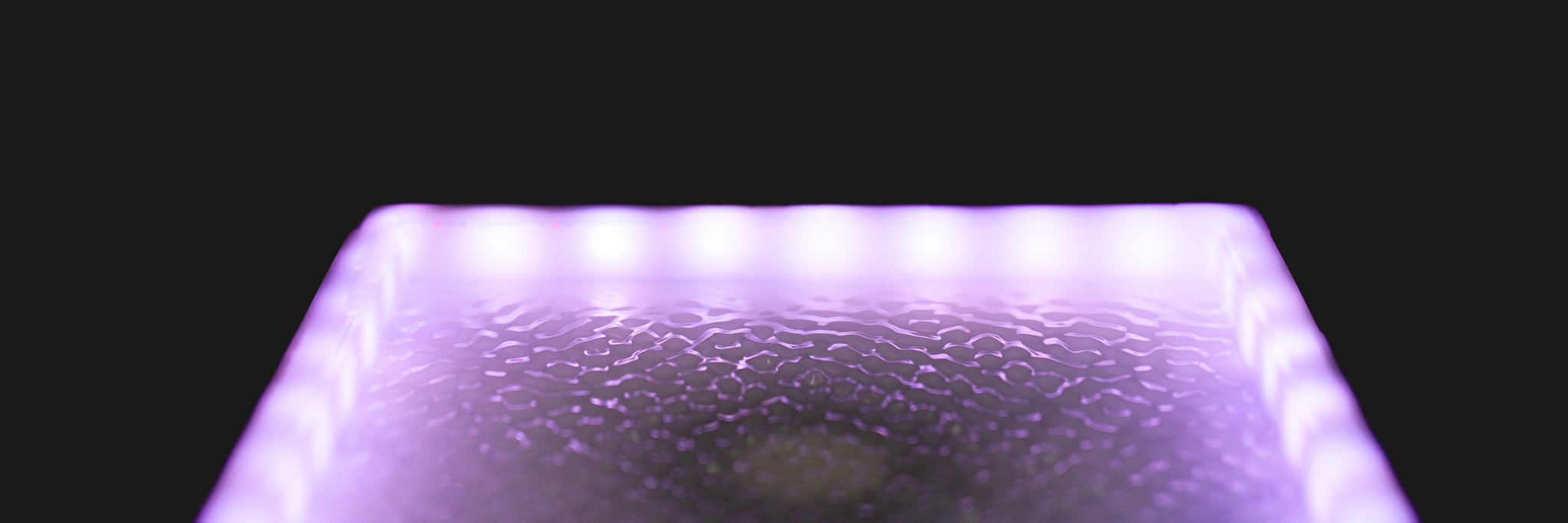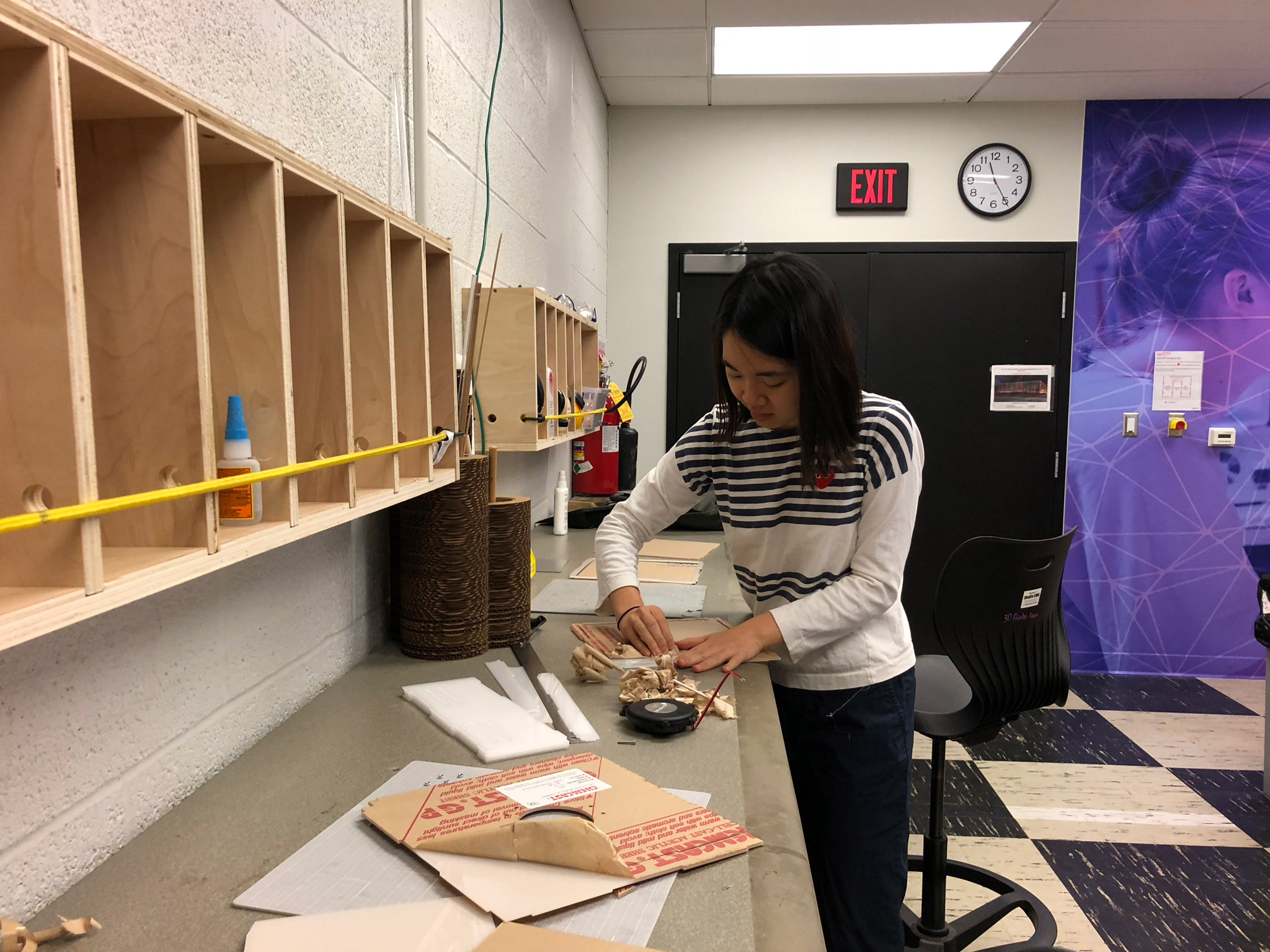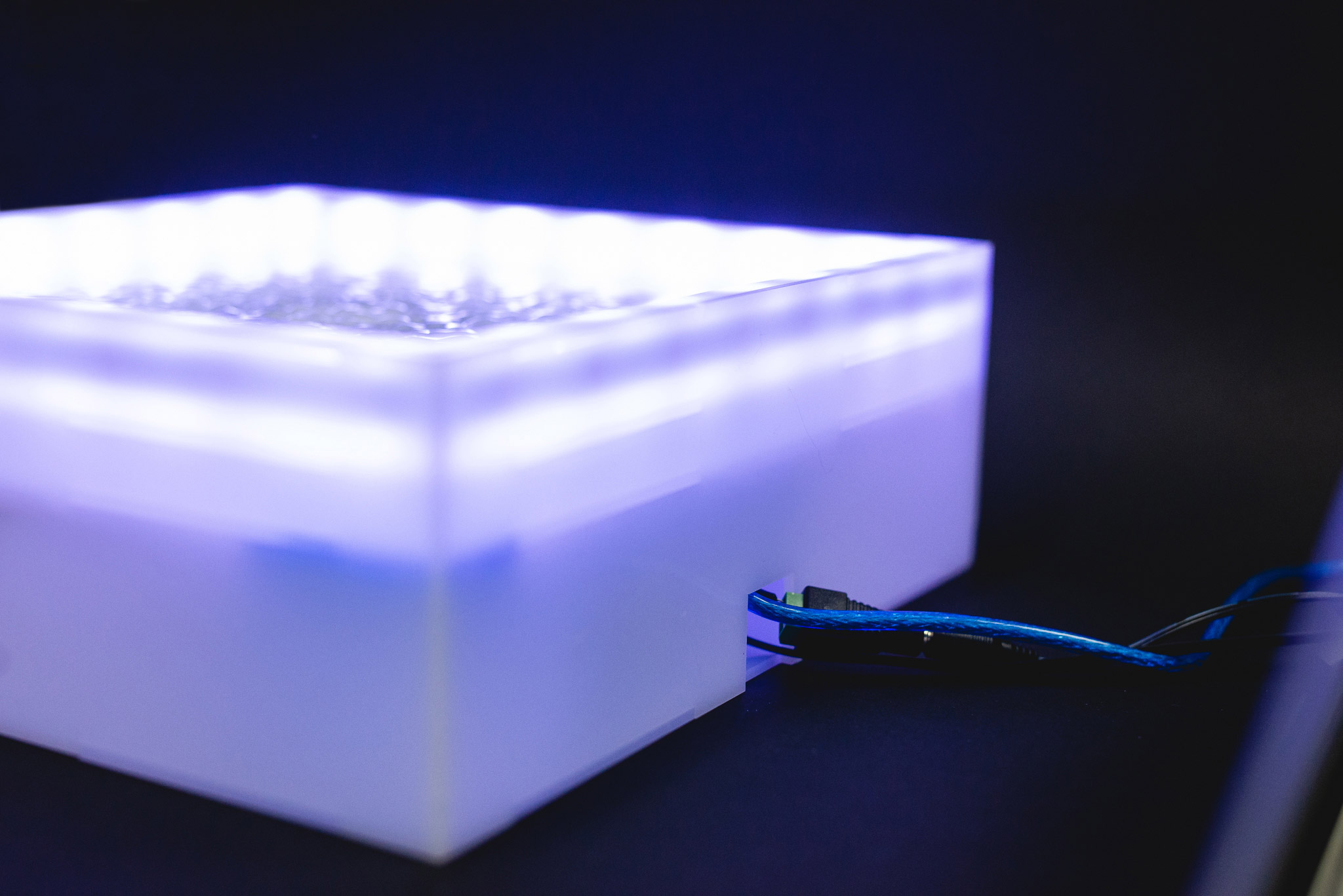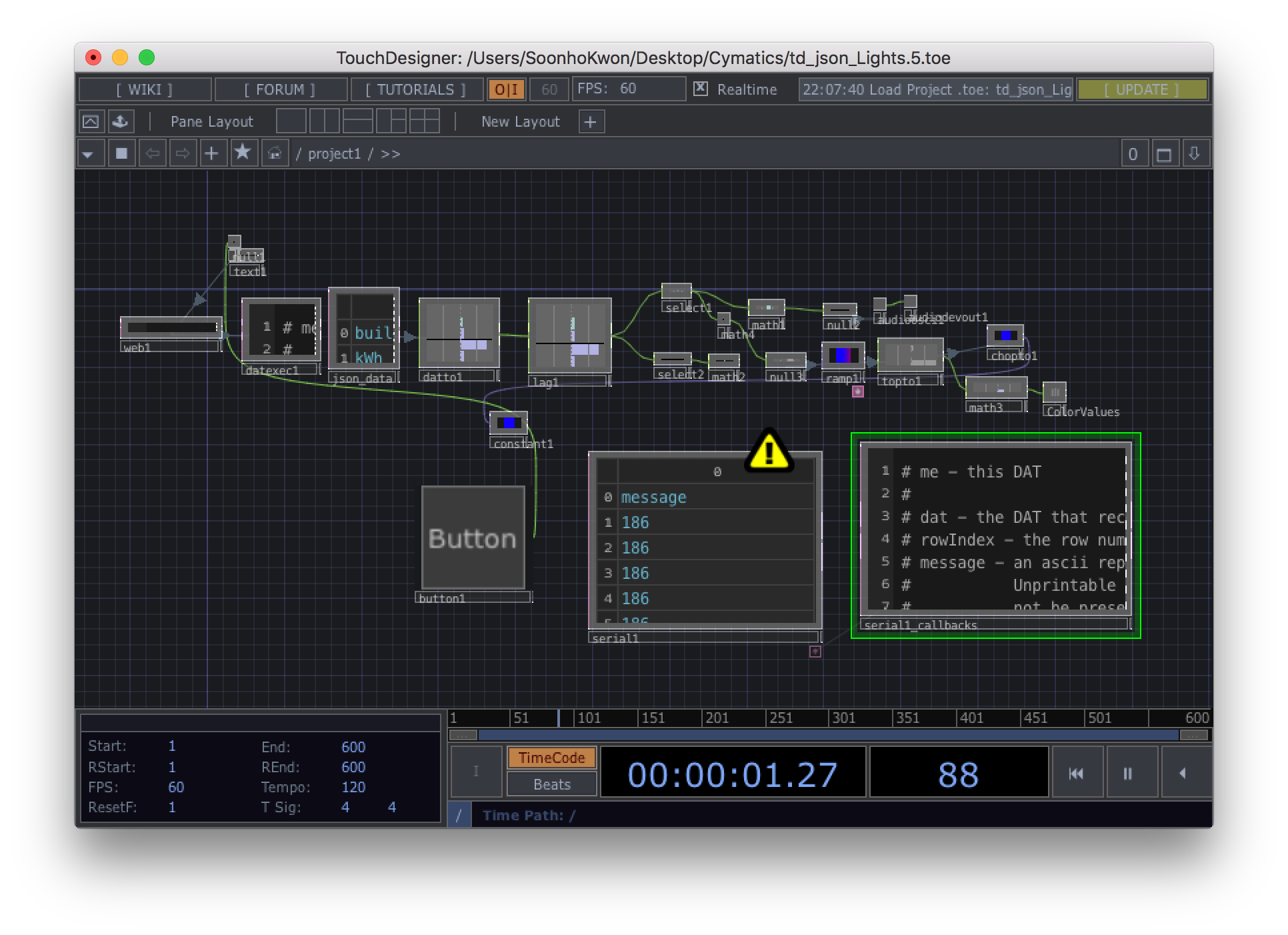
Electrocymatics
Fall 2018
2 Weeks
Collaborators:
Miranda Luong
One of my professors inspired me with his thoughts on qualitative interfaces, which portrays design as a channel through which we can understand something about the quality of complex phenomena. This project was an exploration on how vibration and cymatics can be used to communicate the quality of electricity and energy usage.
Process
On the hardware end, we decided to make an enclosure that houses the water, transducer, LED strip, and the Arduino/ shields. Because we were dealing with water and electronics, we had to be extra careful about sealing everything.
Laser cutting situation.

Closeup of the housing.

This project was a good opportunity to learn TouchDesigner. I had wanted to learn this tool for a while because I had heard that it is a really good playground for a lot of different mediums. It helped me create and test a working prototype much faster!
My TouchDesigner Network.

A working model using TouchDesigner. It’s really cool to interact with physical things through digital UI!
Setup
There were two primary variables in our final setup—the turbulence intensity and color of the water.
Final artifact.
Start sequence.
Final Thoughts
The greater learning is that design can be used powerfully to bring greater understanding
and approachability to things that seem nebulous. Electricity and energy is a difficult
concept to understand, but relating it to the qualities of water and turbulence
seemed to really communicate effectively!
On a technical level, I learned a lot about the TouchDesigner x Arduino pipeline,
allowing me to do a lot more software/hardware integrated projects.